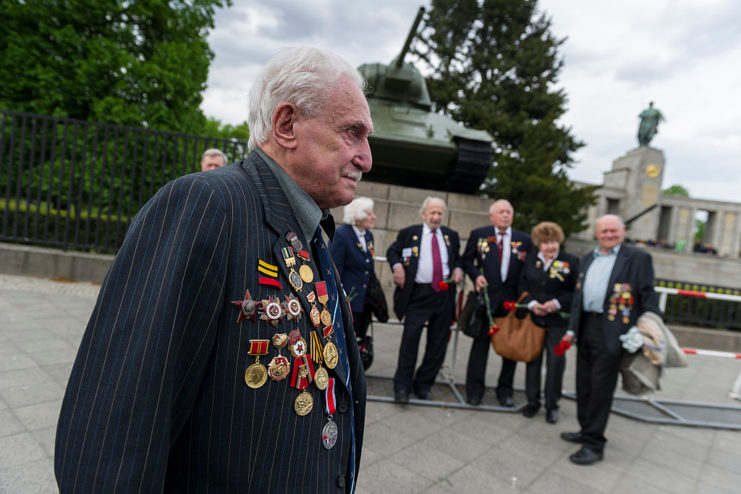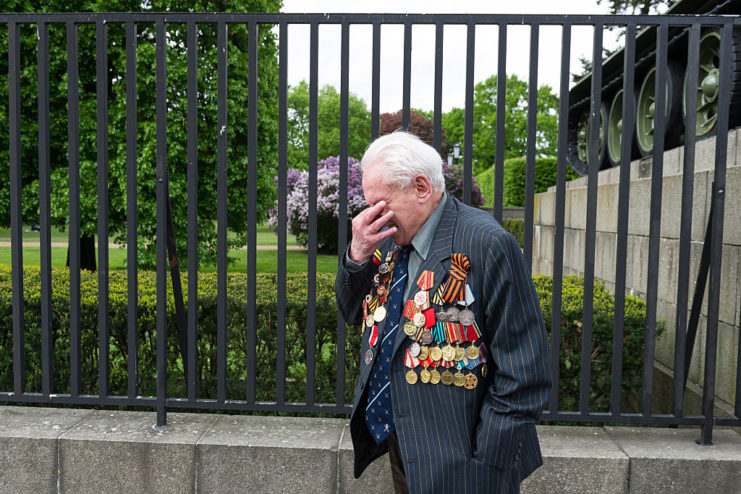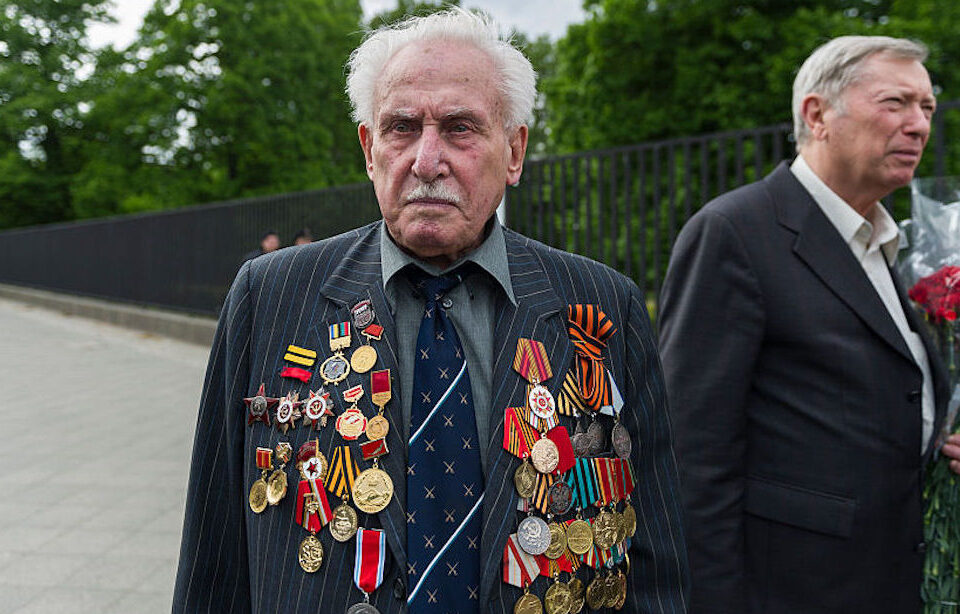David Dushman was a 21-year-old serviceman with the Red Army when he took part in the liberation of Auschwitz in January 1945. The last surviving Soviet soldier to take part in the military operation, he passed away on June 5, 2021, at the age of 98, leaving behind an enduring legacy that’ll never be forgotten.
Death of the ‘Hero of Auschwitz’

David Dushman’s death was confirmed by Charlotte Knobloch, president of the Jewish Community of Munich and Upper Bavaria. In a statement shared to the community’s website, she announced that the “hero of Auschwitz” died at a Munich hospital.
“It is with great sadness that I learned of David Dushman’s death,” Knobloch, herself a Holocaust survivor, wrote. “Every contemporary witness that leaves us is a loss, but saying goodbye to David Dushman is particularly painful.”
She continued, “With him we lose a brave, honest and sincere man and an honorary member of our religious community. We remain deeply grateful to him and will keep him an honorable memory.”
Liberation of Auschwitz

Auschwitz was the largest concentration camp under the German regime. Located in Poland, it was responsible for the deaths of over a million people, primarily of the Jewish faith, through the use of gas chambers, medical experiments, systemic starvation, disease and forced labor.
On the early afternoon of January 27, 1945, David Dushman drove his T-34 over the electric fence at Auschwitz. Once the barrier was down, ground soldiers with the 332nd Soviet Rifle Division were able to enter, initiating the camp’s liberation.
During an interview, Dushman recalled he and the other soldiers weren’t aware of Auschwitz’s existence and didn’t immediately realize the scope of the horrors that had taken place there. “They stumbled out of the barracks, they sat and lay among the dead,” he said, adding troops offered them food before moving on “to hunt Fascists.”
Not long after arriving at Auschwitz, Dushman was ordered to leave and make his way to Berlin. This was just one of the many significant military events he took part in during World War II, along with the battles of Stalingrad and Kursk.
At the end of the conflict, Dushman was one of only 69 members of his division to survive. This was despite being severely injured three times, with one wound requiring the removal of part of his lung. For his service, he was awarded more than 40 decorations and distinctions, including the Order of the Patriotic War.
David Dushman’s life after World War II

David Dushman became a professional fencer after World War II. From 1952-88, he was a coach for the USSR’s women’s national fencing team. His involvement meant he was present at the 1972 Munich Olympics when the Munich Massacre occurred.
On September 5, 1972, eight armed members of the Palestinian group Black September broke into the Olympic compound, killed two members of the Israeli team and abducted nine more. During the rescue attempt, the remaining hostages were murdered, along with five Black September members and a West German police officer. The remaining three men were taken into custody.
More from us: Bradford Freeman: The Easy Company Mortarman Who Fought His Way Through Occupied Europe
During his later life, Dushman lived in Austria, before moving to Munich-Neuperlach in 1996 with his wife, Zoja. He visited schools to educate students about the Second World War and the Holocaust, and often attended veterans gatherings.
